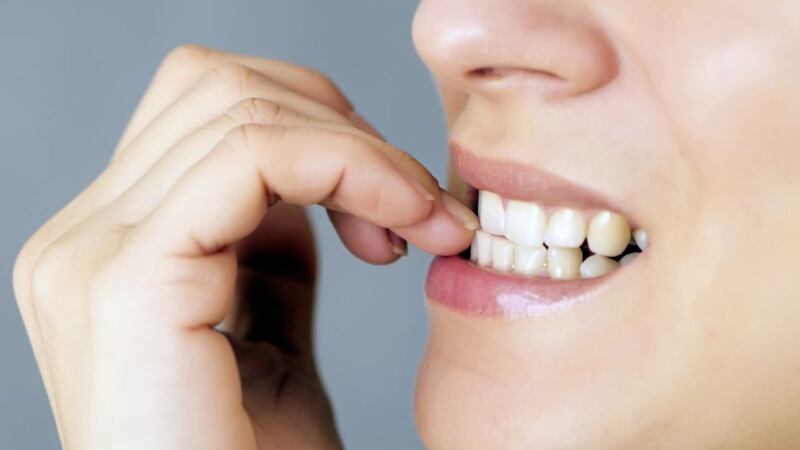IS THIS your guilty secret pleasure – your hand goes to your mouth and you catch yourself nibbling on a nail? Nail biting leaves the nails looking raggedly unattractive but are there other more sinister consequences?
Your nails are twice as dirty as your hands as the bacteria become trapped underneath the top of the nail and around the edges. In particular, a family of bacteria called enterobacteriaceae,which includes salmonella and E. coli, tends to thrive in the cosy crevices. The bacteria can lead to infections not only in your mouth but can spread to the rest of your body, causing gastro-intestinal infections that lead to diarrhoea and abdominal pain.
One virus that finds the nails a welcome habitat is the human papilloma virus (HPV); it is a dangerous sexually transmitted virus that, among other diseases, causes mouth and throat cancers. During sex the virus can attach itself under the nail and is then transferred during nail biting.
HPV is either invisible or appears like tiny warts (not cancerous) on your fingers. These warts can then be transmitted and the lumps can start to grow on your tongue, cheek and gums.
Studies suggest that 60 per cent of children and 45 per cent of teenagers bite their nails. And while people tend to stop after the age of 18, up to 30 percent of biters continue on in adulthood.
Constant gnawing on the nails produces micro cracks in a tooth’s outer hard enamel layer. The cracks then propagate and the edge of the tooth flakes off as its being subjected to excessive overloading forces. Some people, as well as biting the nail, also repeatably pick at the gum. This can scrape the gum totally away from the root surface, leaving a really long-looking tooth that feels super sensitive. If too much gum and bone has been worn away then the tooth will fall out.
Quitting nail-biting, although tough, is not impossible. Try applying bitter-tasting nail polish or you may want to get yourself a manicure with false nails to deter the nibbling. If stopping is proving difficult then even washing your hands thoroughly before and after you bite can reduce the risk of infection. If you are really struggling with stopping, then there’s always the option of seeking some extra assistance from a behavioural therapist to help you end the compulsion to bite.


